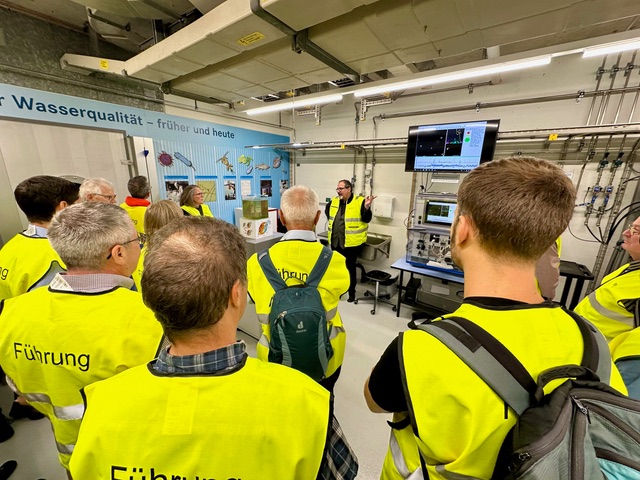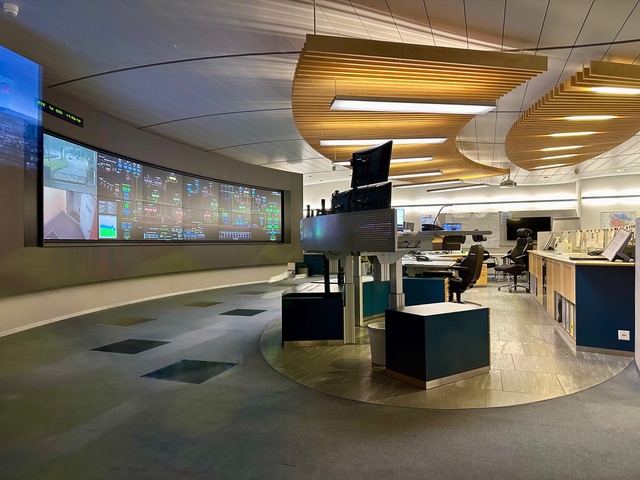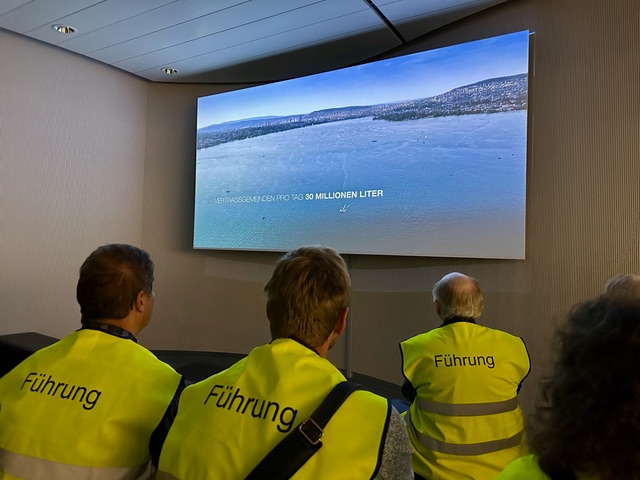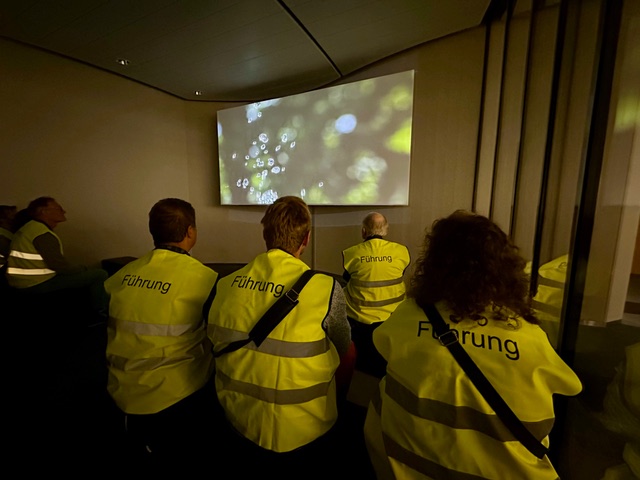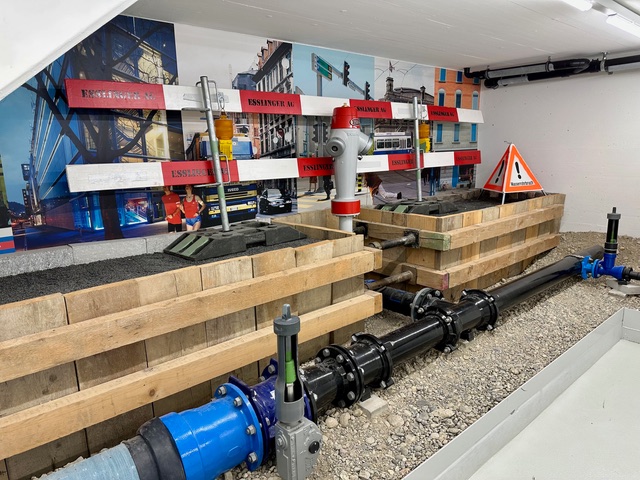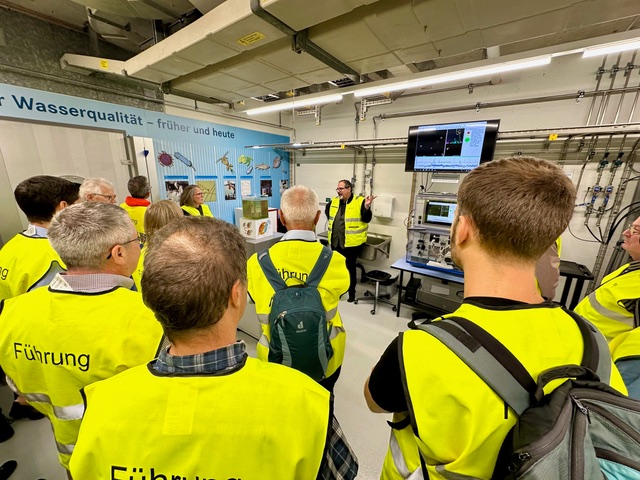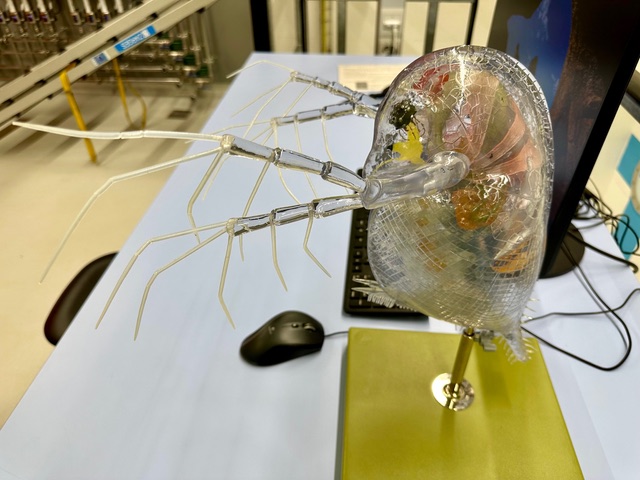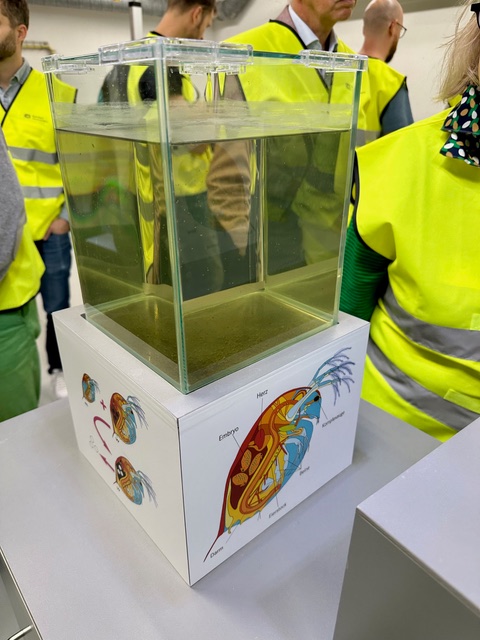This article has been translated with AI.
After a general introduction, we were able to take a closer look at the necessary equipment, wells, pumps, pipes and control systems during a tour of the plant and learn why trout are no longer needed for quality control.
The members were welcomed by Martin Roth, Director of the Zurich Water Supply (WVZ), who gave us a brief introduction and an initial overview of the WVZ and its supply network.
Afterwards, an experienced employee of the groundwater plant explained the process of drinking water treatment and distribution in detail and answered the numerous questions of interest to the audience competently, vividly and with humor.
The actual tour of the plant took place in two groups due to the number of participants. We had the opportunity to visit one of the four horizontal filter wells, which extract the water from the groundwater flow and convey it to the zone pumping station. We also visited one of the recharge basins, from which the extracted groundwater is compensated via absorption wells. This prevents low-quality groundwater flows from entering the protection zone of the Hardhof groundwater field.
Next, our group made its way past the storage facility for the distribution pipes to the pumps that transport the water to the higher Lyren and Höngg reservoirs. From there, the water is distributed to households by gravity alone.
We ended our tour with a look at the measuring devices for quality control. Water fleas, known as "daphnia", have long since taken over the function of the trout as a living indicator in this area. With the pattern of their movements in the water, which are continuously tracked by a computer program, they provide information about the quality of the water.
Unfortunately, due to time constraints, our group was unable to visit the heart of the WVZ, the round-the-clock control center from which the groundwater works, the lake and spring water works, 29 pumping stations, 21 reservoirs and the spring water locks are controlled.
At the end of the tour, the members met in the foyer of the WVZ for an aperitif, a mutual exchange of ideas and further questions for the two guides, who deserve a big thank you.
All in all, the visit to the Hardhof groundwater plant was an informative and educational experience for the ETH alumni. It provided an insight into modern water management and the challenges associated with supplying drinking water in a growing city. The participants left the plant with a heightened awareness of the importance of sustainable water resources and the responsibility we have as a society to protect this precious resource.
Further information: external page Hardhof groundwater plant. Public guided tours on request.
